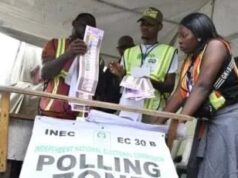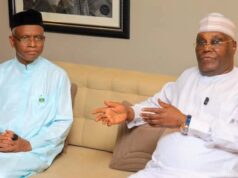The House of Representatives has launched a full-blown investigation into the multi-billion-naira Baro Inland Port project, which remains eerily idle six years after it was declared completed and commissioned.
In what lawmakers are calling “a national embarrassment,” the House Ad-hoc Committee on the Rehabilitation and Operationalisation of Baro Inland Port has summoned Minister of Marine and Blue Economy, Adegboyega Oyetola, and the Managing Director of the National Inland Waterways Authority (NIWA), Bola Oyebamiji, to explain why the port—meant to revolutionize inland cargo transport—has become a costly white elephant.
“This is a scandal of major proportions,” thundered Hon. Saidu Abdullahi, Chairman of the Committee, during a tense session in Abuja on Tuesday. “Billions of naira have been spent. There are no ships, no cargo, no access roads—just silence. Someone must be held accountable.”
The committee demanded full disclosure: contract documents, payment records, evaluation reports, inspection photos, and evidence the port was ever truly ready for use.
“We don’t want stories. We want proof,” Abdullahi declared, his voice cutting through murmurs in the chamber. “This is not just about failed infrastructure. It’s about betrayal of public trust.”
The mood among lawmakers was visibly tense. Many expressed outrage that a port so heavily funded and publicly celebrated in 2019 now sits unused, with no road access, no rail connection, and no visible signs of life. “How can you commission a port with no way to reach it?” one lawmaker asked, visibly exasperated.
In a bid to calm nerves, Engr. Agbahe Fidelis, who represented the NIWA Managing Director, admitted that the port had been plagued by “critical infrastructure deficits” — from silted waterways to vandalized rail links and security threats. But his explanation failed to impress the committee.
“This is not acceptable,” Abdullahi retorted. “If the port was not ready, why was it commissioned? Where did the money go?”
Lawmakers rejected verbal assurances and insisted on hard evidence. The committee announced plans for a physical inspection of the Baro Port to verify claims firsthand. Agencies that failed to attend the hearing — including the Ministry of Works and the Nigeria Railway Corporation — were ordered to appear at the next session.
In a final warning, the committee gave NIWA and the Ministry of Marine and Blue Economy seven days to submit all relevant documents or risk further sanctions.
“This is not a witch-hunt. It’s a duty to the Nigerian people,” a lawmaker said. “They deserve to know how their money vanished into a port that never worked.”




